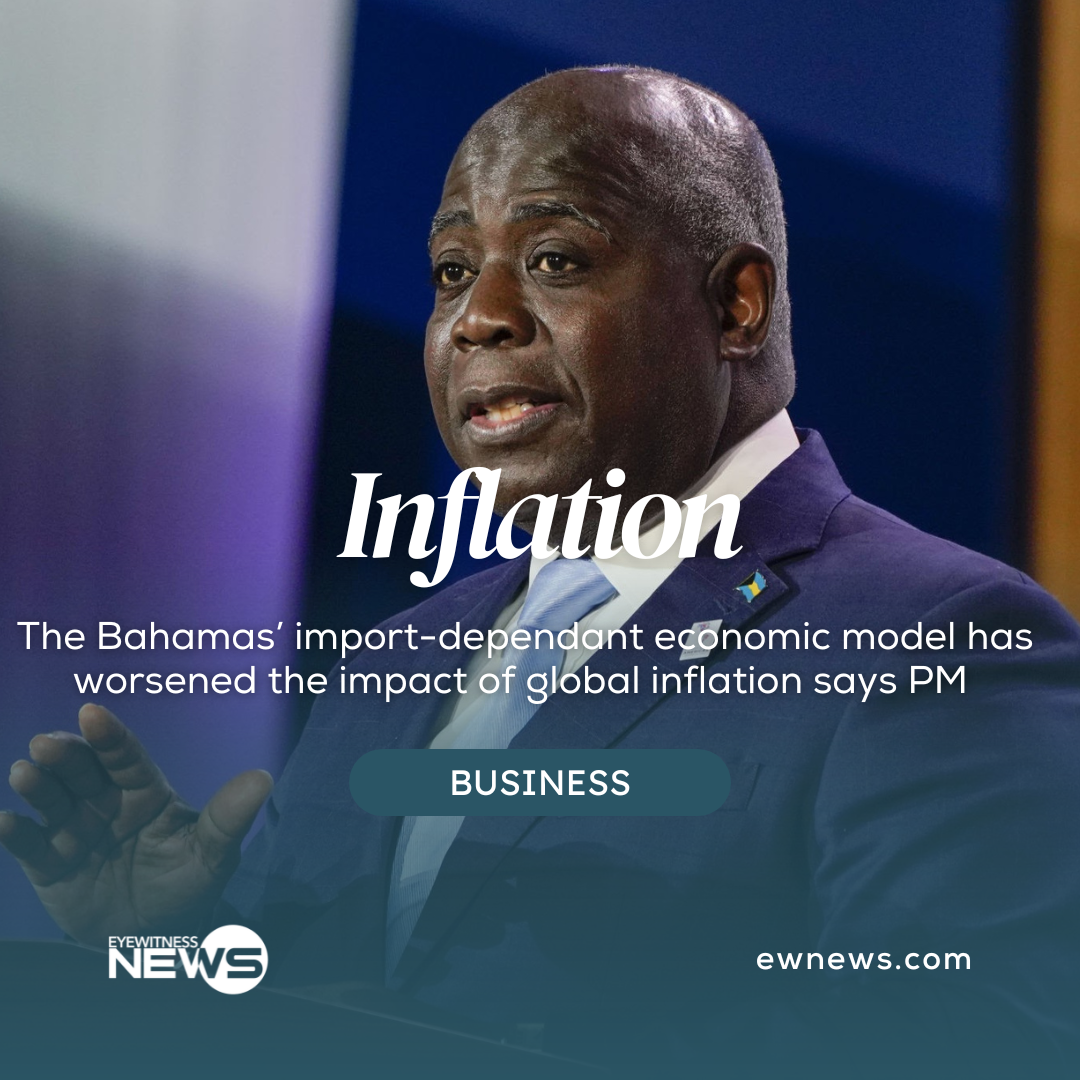NASSAU, BAHAMAS — The Bahamas’ import-reliant economic model has exacerbated the impact of global inflation, Prime Minister Philip Davis said yesterday
He noted that government efforts thus far have not been sufficient to mitigate the historically high levels of global inflation. During his contribution to the debate on the Speech from the Throne, Davis noted that The Bahamas’ high cost of living has placed a strain on families and businesses for decades.
“Unfortunately, the recent global inflation crisis caused by the COVID-19 pandemic and the Russia-Ukraine war has worsened an already bad situation. This administration took action by lowering customs duties, lowering the overall VAT rate, and ramping up price control enforcement, but this was not enough to offset historically high global inflation,” said Davis.
“It is the lower-income Bahamians who struggle the most. In a short period of time, it has become much more difficult for them to make ends meet. While we cannot put an end to global inflation, we can take action domestically in the areas where it is possible to make a difference.”
The Prime Minister acknowledged that The Bahamas has an economy that is heavily dependent on imports, namely food, goods, equipment, and oil.
“Our reliance on imports has been hardwired into our economic model for generations. While people all around the world are paying higher costs as a result of the inflation crisis, the prices we pay here in The Bahamas due to our import-reliant economic model can be exorbitant,” said Davis.
He admitted that changing a model that has been around for generations is “no small task.”
“We are not talking about a quick Band-Aid fix here. We are talking about reimagining the way our economy works. It is a necessary step that we must take if we are serious about enhancing economic security. The two areas where we anticipate the most impact are food production and energy generation. We believe that we can lay a foundation that will significantly decrease the cost of living for Bahamians in the long run,” he said.
The Prime Minister noted that the solarisation of several Family Islands has already begun and this effort is slated to continue.
“We’ve launched programs to install 100 megawatts of solar energy in New Providence and we are building new blended power facilities that will feature a minimum of 50 percent solar power generation in sixteen locations throughout the Family Islands. But this is not enough. We must expand our efforts on the Family Islands, and we must begin making progress on developing viable, large-scale energy solutions for New Providence,” he said.
The government, in this Parliamentary session, plans to introduce a Renewable Energy Bill to facilitate the expansion of renewable energy.
Davis also pledged that a National Food Security Plan will be launched to provide a comprehensive framework for the development of our food production and agricultural systems.






